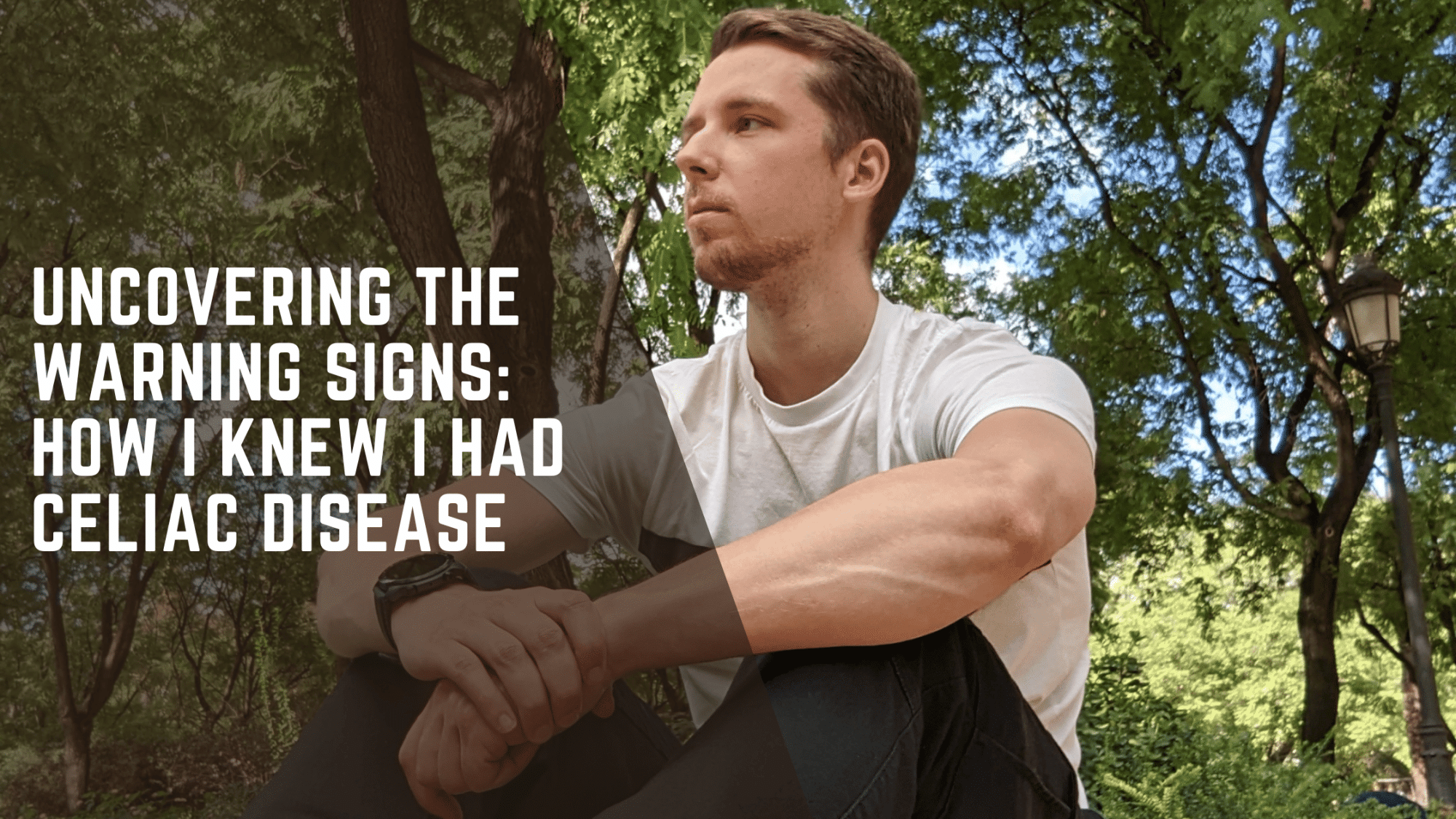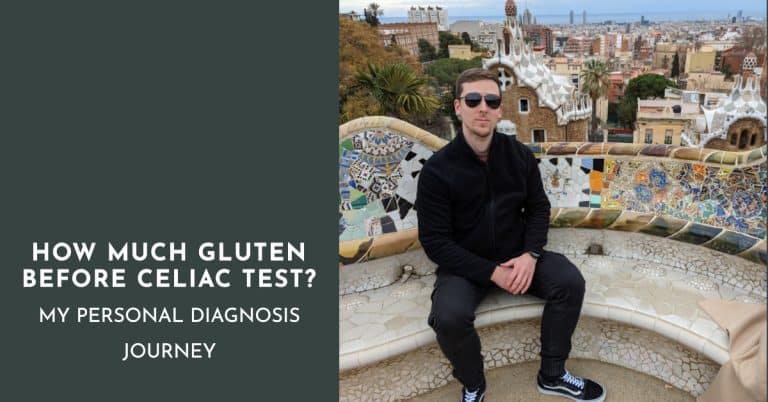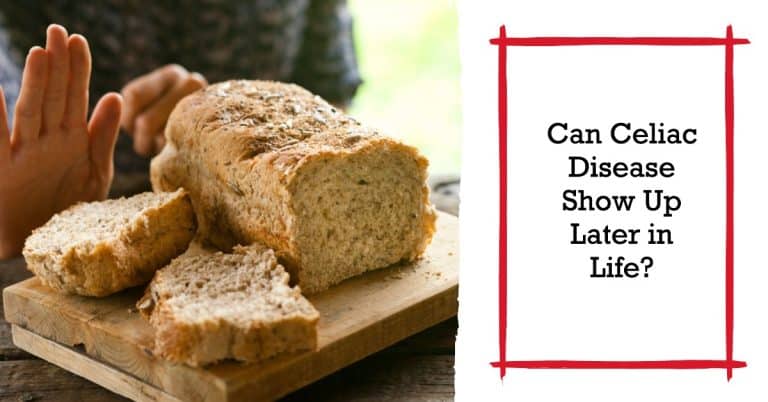How I Knew I Had Celiac Disease: The Warning Signs

Life is full of uncertainties, but recognizing the signs of celiac disease shouldn’t be one of them.
I’m about to uncover the subtle clues of my diagnosis.
What felt off? A nagging discomfort that wouldn’t relent.
Join me as I piece together the puzzle of my health, sharing insights that could change your life.
Could these whispers of discomfort be a warning?
Stay with me as I explore the turning points in my journey to self-awareness and discovering how I knew I had celiac disease.
Your path to understanding celiac disease begins here.
The Uncomfortable Realization: How I Knew Something Was Wrong

Roll back to 2019, and I was in the midst of one of the most exciting years of my life so far. It was when I began to broaden my horizons – traveling solo, enjoying new cultures, and learning a lot more about myself.
But the excitement and adventure soon became overshadowed by discomfort – something I couldn’t quite put my finger on.
At first, I thought it was just the stress of the lifestyle often associated with working freelance – when a regular paycheck is not a guarantee, and the idea of a routine is pretty foreign.
But in November of that year, I was enjoying a vacation in Portugal, and that’s when things really started to become apparent.
During this time, the friend I was with couldn’t help but notice I was going for more than my fair share of bathroom breaks (don’t worry, I’ll spare you the details!).
That’s on top of the severe stomach cramps I was experiencing – which felt like I’d completed one of the most intense ab workout routines you could imagine. Even getting out of bed was a struggle!
It was at this point I realized the discomfort wasn’t just stress-related; it was physical – and something more serious could be going on. It was time to dig deeper into the cause…
Getting Answers: Easier Said Than Done
My friend convinced me I should visit a doctor upon returning from my trip. That’s when the series of tests began: blood work, stool samples, and even scans at the hospital to determine if there were any underlying issues.
A marker for potential celiac disease was discovered in my blood tests, and that’s when I was referred to a gastroenterologist for further testing.
The problem was getting the definitive answer I needed took far longer than I anticipated. And so, a long period of uncertainty commenced, leaving me wondering what could be wrong and how it would affect my life.
The Covid-19 pandemic only worsened matters, with many tests and appointments delayed due to restrictions. My only option was to ride it out and wait patiently to receive the desperately needed answers.
Ultimately, it took three separate hospital visits, with the first two leading to inconclusive results. Determined to get to the bottom of my mystery discomfort, I went back for a third visit and finally got the conclusive answer – I was officially celiac.
The Diagnosis: How I Felt When It Was Revealed
It was a long process, but it all culminated in July 2021 when I finally received the definitive news I had been dreading: I had celiac disease. But not just that, I also discovered I had irritable bowel syndrome (IBS).
I was shocked, scared, and confused all at once. What did this mean? How would my life change? Could I still enjoy the foods I loved? Was there an end to all the discomfort?
The diagnosis eventually sunk in, and a wave of relief came with it. I was so thankful that I now had answers and could start to put together a plan of action.
In the months previous to this, I was on and off a gluten-free diet, suffering from symptoms including gas, bloating, frequent toilet trips, anxiety, and more with no apparent cause. Now, I had a clear treatment roadmap and could start making changes to improve my health.
Managing Celiac Disease and IBS: Understanding the Severity of My Symptoms
The diagnosis of celiac disease and IBS was a wake-up call to me. It put into perspective the severity of my symptoms and how much pain and discomfort I had been in. I knew I’d have to make drastic changes if I wanted to get better.
There’s never a good time to be diagnosed with a double whammy of celiac disease and IBS – either condition is challenging to manage separately. But when you put them together, it can be a real kick in the teeth.
I was tasked with overhauling my entire diet and lifestyle to ensure I could manage my symptoms. This meant saying goodbye to some of my favorite foods, such as pizza, pasta, and bread – which were all off-limits (at least the regular, gluten-filled versions!).
That’s on top of living with two non-celiacs, who, until my diagnosis, were just as unaware of the effects of celiac disease as I was. It’s been a difficult journey, but we’ve all worked together to ensure I manage my symptoms effectively and live a healthy life.
How I Took Control with a Strict Gluten-Free Diet
I’m not going to lie. Adjusting to the gluten-free lifestyle was difficult at first. It took a lot of trial and error to determine which foods were safe for me to eat, and even then, there was the risk of cross-contamination.
It’s like navigating a minefield – you must be careful about everything, including scrutinizing every label to know if something is gluten-free. With time, I got the hang of it and started to find my footing in the gluten-free world.
I began to experiment with different recipes, searching for new flavors that were safe for me to eat. And, of course, I made sure that other household members were taking steps to avoid cross-contamination.
The same goes for eating out. In the past, I’ve had several unfortunate experiences with restaurants that weren’t aware of my dietary requirements or didn’t take my condition seriously. So now, if they give me any indication that they don’t understand my needs, I politely explain and thank them for their time.
If you’re in the same boat as me and have reservations about eating out, my advice is always to call ahead and ask about the menu. Many restaurants are happy to cater to specific dietary requirements if you give them a heads-up!
But for the sake of your health, never risk compromising it by tolerating someone who refuses to take your condition seriously. Even if doing so may make you appear impolite, nothing is more important than your health. I learned this the hard way!
Living with Celiac Disease and IBS: The Challenges I Face Every Day
It’s been a long road and an uphill battle, but I’m finally in a place where my symptoms are manageable. It hasn’t been easy, though, as I still face challenges daily living with celiac disease, including cross-contamination concerns, limited food options, and attending social events.
The good news is that there is now a range of gluten-free alternatives on the market, which I’m grateful for. And with my newfound knowledge of what foods trigger reactions, I can try my best to avoid them and maintain a healthy diet.
Of course, I will still often experience unpredictable flares. But that’s just a reminder of why I must be so careful and stay on top of my diet – so that I can continue living with celiac disease and IBS in check.
In addition to my new diet, I’m also working on lifestyle changes to reduce stress levels and improve my overall well-being. This includes regular exercise, meditation, deep breathing exercises, and ensuring I rest and relax whenever needed.
Final Thoughts
That just about wraps up my personal journey of being diagnosed with celiac disease.
I’m so thankful for the opportunity to share my experience with you. I hope it will be helpful and encouraging, no matter what stage of your journey. So keep going – a better life awaits!
And if you have any questions, don’t hesitate to reach out, and I’ll be more than happy to help where I can.
Thanks for reading!
Until next time,
Cristian.
Disclaimer: This content is based on my personal experience as an individual diagnosed with celiac disease and IBS (Irritable Bowel Syndrome) who follows a strict gluten-free diet. This does not constitute medical advice. Please consult a medical professional, nutritionist, or qualified dietitian for personalized, professional advice.


